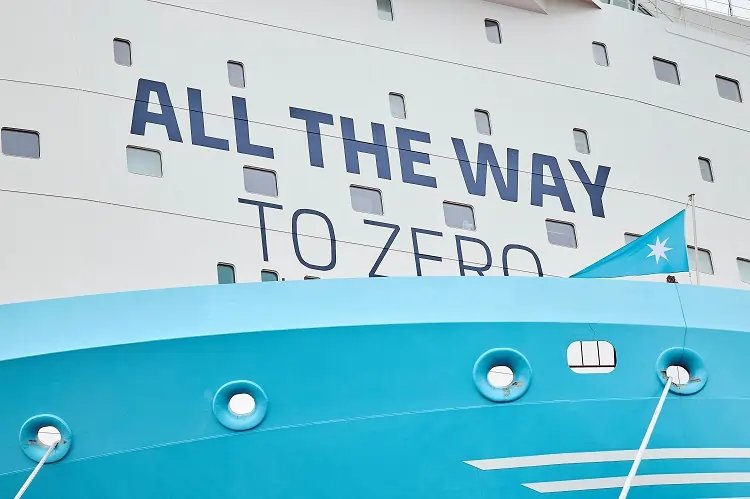EU's cleaner marine fuel rules are inflationary, shipbrokers say
Published by Global Banking & Finance Review®
Posted on January 6, 2025
3 min readLast updated: January 27, 2026

Published by Global Banking & Finance Review®
Posted on January 6, 2025
3 min readLast updated: January 27, 2026

EU's marine fuel rules will increase shipping costs and impact inflation. Firms with alternative fuel vessels stand to benefit from the changes.
By Enes Tunagur
LONDON (Reuters) - European Union marine fuel rules, effective from Jan. 1 as part of efforts to cut emissions, will raise shipping costs, although firms with vessels that can run on alternative fuels, such as biodiesel and LNG, will benefit, two shipbrokers said.
The policy is the second major EU regulation focused on cutting the shipping industry's carbon emissions in as many years. Shipping transports over 80% of all traded goods and causes nearly 3% of greenhouse gas emissions.
The FuelEU Maritime regulation requires commercial ships above 5,000 gross tonnage operating in EU ports to cut emissions from marine fuels, also called bunker fuels, or pay penalties.
Biofuels and other alternative fuels for ships are in short supply, and there is competition from aviation and other sectors. That means shipping companies' costs will rise - and ultimately, the increase will be passed onto consumers and businesses, shipbrokers said.
The new policy follows the EU's inclusion of shipping in its Emissions Trading System (ETS) in 2024 that means ships pay for their emissions made on voyages that include EU ports.
"It is important that we understand that shipping decarbonisation will be inflationary, as freight rates will be impacted," Kenneth Tveter, head of green transition at shipbroker Clarksons, said.
Mattia Ferracchiato, head of carbon markets at shipbroker BRS, also said freight rates would increase as ships either pay a premium for greener fuels or a penalty for failing to comply.
FuelEU penalties could equal 3% of the total freight cost for a tanker carrying around 70,000 metric tons of crude or fuel oil between the U.S. Gulf and Rotterdam, calculations from BRS show.
A ton of very low sulphur (0.5%) marine fuel in Rotterdam cost 505 euros ($522) on Jan. 3, according to data from marine fuel platform ZeroNorth. Biodiesel-blended very low sulphur (0.5%) marine fuel in Rotterdam, meanwhile, cost 686 euros ($709) per ton, according to bunker intelligence platform Engine.
COMPLIANCE OPTIONS
Under the regulation, eligible ships must reduce bunker fuel emissions by 2% each year between 2025-2029 from an emissions baseline of 91.16 grams of CO2 equivalent, while the reduction target rises every five years up to 80% in 2050.
Switching to biofuel-blended bunker fuels and liquefied natural gas (LNG) will be among the most popular compliance options, said Clarksons' Tveter.
But there were still drawbacks, he said.
"Biofuel supply is limited and competition will be fierce, especially from aviation," he said, adding aviation, unlike shipping, was used to having to pay up for "a premium refined product".
Shipping companies with vessels that can run on alternative fuels will benefit, Tveter added. Biodiesel-blended fuel oils and LNG are the most readily available alternative marine fuels.
Marine consultancy DNV said the preferred option could be a pooling system whereby ships that reduce emissions below the threshold of 91.16 grams of CO2 equivalent create a surplus, allowing multiple ships to comply with the FuelEU regulation.
Companies with many vessels could secure a compliance surplus on selected vessels, most likely by switching to biofuels, then using pooling to make the whole fleet compliant.
Other firms could also buy or sell allowances from other shipping companies.
A single vessel running on LNG can make four other same-sized ships compliant with the FuelEU regulation, according to the European Commission.
(Reporting by Enes Tunagur, editing by Alex Lawler, Dmitry Zhdannikov, Simon Webb and Barbara Lewis)
The EU's FuelEU Maritime regulation requires commercial ships above 5,000 gross tonnage operating in EU ports to cut emissions from marine fuels or pay penalties, effective from January 1.
Shipping costs are expected to rise as companies will either pay a premium for greener fuels or incur penalties for non-compliance, leading to increased freight rates.
Shipping companies can switch to biofuel-blended bunker fuels and liquefied natural gas (LNG), and they may also use a pooling system to manage compliance across their fleets.
There is a limited supply of biofuels and competition from other sectors like aviation, which complicates the transition to greener marine fuels.
Experts predict that freight rates will increase due to the added costs of compliance with the new regulations, which could equate to a significant percentage of total shipping costs.
Explore more articles in the Finance category




